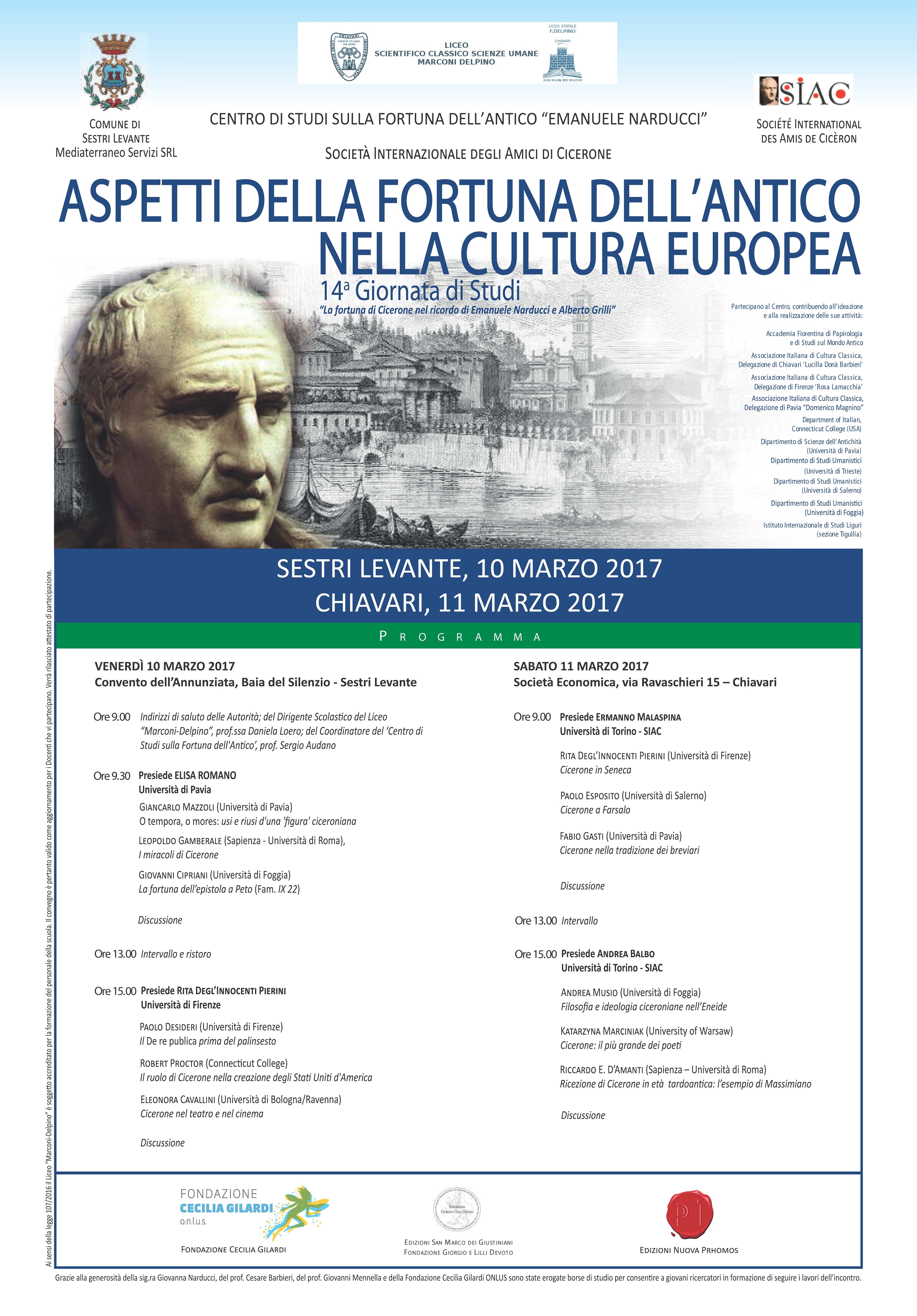Cicerone a Farsàlo - Cicero at Pharsalus
DOI:
https://doi.org/10.13135/2532-5353/2823Abstract
There is little doubt that Cicero’s suasoria in book 7 of Lucan’s Bellum Civile, performed to encourage Pompey to attack, is a fiction. Historical sources tell us that Cicero was not in Thessaly on the eve of the battle for health reasons; these sources also indicate a certain ambivalence felt by Cicero towards Pompey. This feeling was underscored by Cicero’s refusal to take command of the remnants of the army after defeat, construed by some contemporaries as an insult to the Pompeian faction. The paper explores the fictional speech that Lucan scripted for Cicero, presenting him, not without a veil of irony, as Romani maximus auctor / [...] eloquii (7, 62-63; cf. Catull. 49).
È senza dubbio un “falso storico” quello commesso da Lucano nel VII libro del Bellum Civile, in cui fa pronunciare a Cicerone una suasoria per convincere Pompeo ad attaccare battaglia. Da un esame delle fonti storiche risulta certa l’assenza dell’Arpinate dalla Tessaglia, per addotte motivazioni di salute, così come appare ambiguo il comportamento tenuto dall’oratore nei confronti di Pompeo, a tacere dell’affronto verso la fazione pompeiana compiuto da Cicerone che, dopo Farsàlo, avrebbe rifiutato di prendere il comando delle forze repubblicane. Lucano, dunque, avrebbe volutamente messo in bocca a Cicerone, presentandolo come Romani maximus auctor / [...] eloquii (7, 62-63) – espressione probabilmente ironica se confrontata con Catull. 49 – un discorso palesemente falso, in quanto vi si esorta il Grande ad affrettare l’attacco in virtù di una presunta protezione della Fortuna e degli dèi, laddove è lo stesso Pompeo a mostrarsi consapevole dell’esatto contrario (Lucan. 7, 85-86).
C’est sans aucun doute un « faux historique » celui commis par Lucain dans le livre VII du Bellum Civile, dans lequel il donne à Cicéron un discours pour convaincre Pompée d’engager le combat. À partir d’un examen des sources historiques, il résulte que l’absence de l’Arpinate de Thessalie est certaine, pour des raisons présumées de santé, tout comme le comportement tenu par l’orateur à l’égard de Pompée semble ambigu, au silence de la confrontation avec la faction pompéienne menée par Cicéron qui, après Pharsale, aurait refusé de prendre le commandement des forces républicaines. Lucain aurait donc délibérément mis cela dans la bouche de Cicéron, en le présentant comme Romani maximus auctor / [...] eloquii (7, 62-63) – expression probablement ironique par rapport à Catulle 49 – un discours qui est manifestement faux, dans la mesure où le Grand est pressé d’accélérer l’attaque en vertu d’une prétendue protection de la Fortune et des dieux, alors que le même Pompée de se montrer conscient du contraire (Lucain, 7, 85-86).
Downloads
Downloads
Published
How to Cite
Issue
Section
License
Authors who publish with this journal agree to the following terms:
- Authors retain copyright and grant the journal right of first publication with the work simultaneously licensed under a Creative Commons Attribution License that allows others to share the work with an acknowledgement of the work's authorship and initial publication in this journal.
- Authors are able to enter into separate, additional contractual arrangements for the non-exclusive distribution of the journal's published version of the work (e.g., post it to an institutional repository or publish it in a book), with an acknowledgement of its initial publication in this journal.


 Ciceroniana On Line is recognised by ANVUR (the National Agency for the Evaluation of the University System and Research) as a CLASS A journal for the Sciences of Antiquity, Philology, Literature and History of Art (
Ciceroniana On Line is recognised by ANVUR (the National Agency for the Evaluation of the University System and Research) as a CLASS A journal for the Sciences of Antiquity, Philology, Literature and History of Art ( The journal is included in DOAJ. The DOAJ listing of the journals is available at
The journal is included in DOAJ. The DOAJ listing of the journals is available at  The journal is indexed in
The journal is indexed in  The journal has been included in ERIH PLUS. The ERIH PLUS listing of the journals is available at
The journal has been included in ERIH PLUS. The ERIH PLUS listing of the journals is available at 

